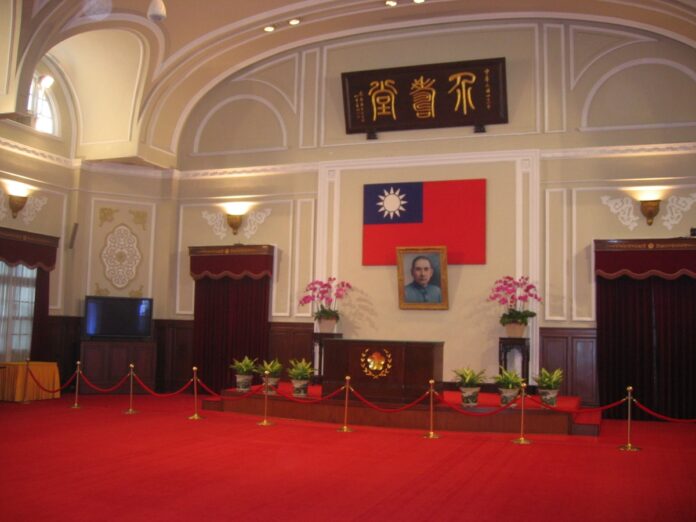The Spy Was Inside the Palace All Along
What may have seemed like a Cold War relic has now returned with ruthless relevance: espionage at the heart of a democracy under siege. In Taiwan, several former close aides to President Lai Ching-te have been formally charged with leaking classified information to China. Not just civil servants, individuals embedded in the nerve center of the state.
The story has barely made waves in Western media. Yet it reveals what may be the most sophisticated Chinese infiltration of a democratic ally in years. While Washington obsesses over Indo-Pacific naval maneuvers, Beijing seems to have already breached the walls of the presidential compound in Taipei, without firing a shot.
The DPP Infiltrated from Within
According to prosecutors, four individuals, including a former assistant to President Lai and a senior aide to former Foreign Minister Joseph Wu, provided classified information to Chinese agents. Details reportedly included the president’s travel routes, policy briefings, and sensitive internal communications.
The accused used encrypted messaging apps and shell companies to funnel this intelligence across the Strait. In return? About NT$8.3 million (US$277,000) in illicit gains. Pocket change for China’s Ministry of State Security. A betrayal of sovereign state secrets for less than a Beijing condo down payment.
Even more troubling: at least one of the suspects had previously been flagged as a “security risk”, but still maintained access to government circles. Whether by naivety or willful blindness, Taiwan’s Democratic Progressive Party (DPP) let the wolf remain among the sheep.
Beijing’s Gray-Zone War Just Turned Black
This is not an isolated episode. It’s the latest chapter in a coordinated gray-zone campaign led by Beijing: a blend of subversion, cyberwarfare, disinformation, and infiltration.
Since 2020, Taiwan has indicted over 150 individuals for espionage, with a record 64 cases in 2023 alone, many of them within the military or security services. Earlier this year, three soldiers guarding the presidential palace were sentenced for selling internal military data to Chinese handlers.
Beijing’s methods are systematic: co-opt criminal networks, launder money via crypto, dangle bribes through cultural NGOs, or exploit religious channels. The targets are often mundane, local officials, NGO staffers, interns, but the cumulative effect is corrosive: a progressive hollowing out of Taiwan’s sovereignty.
The Democratic Facade Cracks
The DPP scrambled to expel the suspects, five in total, but the damage is deeper. President Lai has issued vague calls for “greater vigilance.” But Taiwanese voters may rightly ask how such penetrations were possible in the first place.
Taiwan’s ruling elite, long pampered by American security guarantees and global democratic sympathy, has neglected the ideological and structural hardening a frontline nation demands. Instead of strict vetting, the DPP has embraced inclusivity and political correctness, even when national security was on the line.
The party, and by extension the state, has tolerated ideological naivety disguised as openness. And now, it’s paying for it.
Sovereignty Is Not a Hashtag
What does sovereignty mean if a president’s daily schedule is being read in Beijing before it’s released in Taipei? What value do Western arms or AUKUS pacts hold if the enemy has already embedded itself within your inner circle?
President Lai’s administration has floated proposals for stricter vetting and even reintroducing military tribunals for espionage. Too little, too late? Perhaps. The damage is already done, and the precedent is now set.
In 2025, Taiwan no longer needs to be invaded. It only needs to be bought, one aide, one file, one politician at a time.
The Enemy Within
This espionage scandal doesn’t just reflect a security lapse. It reveals a deeper rot: a liberal state caught off guard by the brutal realpolitik of its most powerful adversary. While Taiwan holds democratic elections and waves the banner of human rights, China is quietly weaving its networks across its bureaucracy.
If this is how a democracy prepares for war, then its fall will not come from missiles or drones, but from compromise, complacency, and quiet corruption.
The time for diplomatic niceties has passed. Taiwan must act decisively, or risk becoming a client state in all but name.



